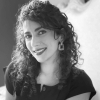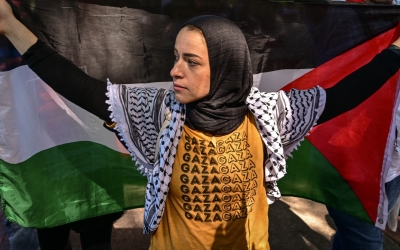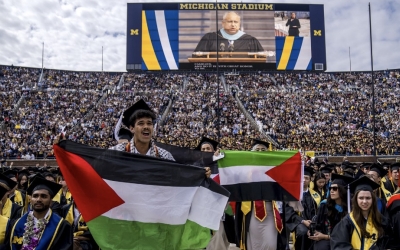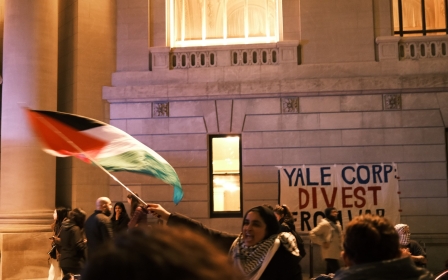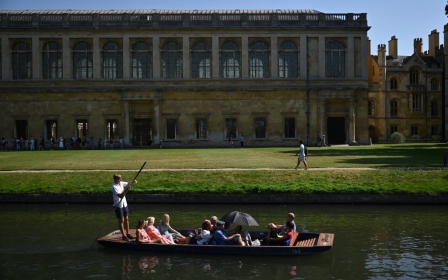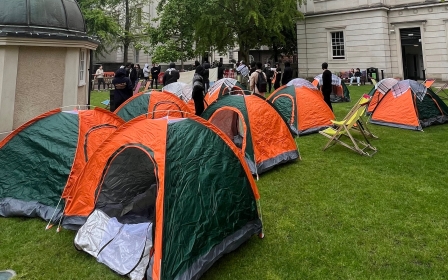War on Gaza: Why students everywhere have been jolted awake by Israel's brutality
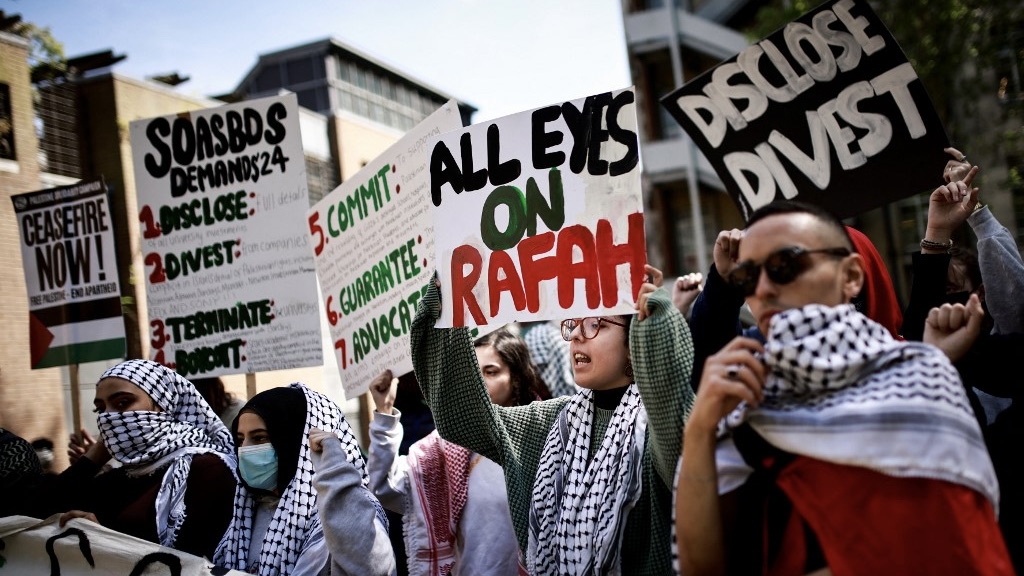
During the First Intifada, the Israeli military occupation attacked Palestinian education when it forced the closure of many schools and universities, sometimes for months on end.
By the fourth month of the Intifada, in March 1988, the Unified National Leadership of the Uprising (Unlu) - deeply aware of the risks and long-term impacts of neglecting the education of an entire generation - issued its 10th communique, criticising Israel for depriving three million Palestinian students of the right to an education as “one of the main pillars of Zionist policy”.
“The Intifada's Unified National Leadership has decided to confront the occupation's racist policies by breaking these decisions,” the communique said.
“It invites students, teachers and the administrators of educational institutions… to defy the decision of the occupation's authorities by organising an educational process on a national basis, to thwart the policy of miseducation enacted on our people.”
University education took on a new significance. It was no longer viewed mainly as a means for individual social advancement but as a crucial tool for collective liberation. Faculty members taught their subjects in public spaces, integrating them with the Palestinian political struggle for justice and freedom.
Students led the popular movement, engaging in learning alongside all other societal groups.
UK student encampments
This past week, a flurry of activities saw several universities in London join the global student intifada movement and set up encampments on their respective campuses. They demanded full transparency from their institutions and called for divestment from Israel and arms manufacturers currently involved in supplying the genocide in the Gaza Strip.
To date, at least 26 universities in the United Kingdom have set up protest encampments against the genocide in Gaza, with students demanding their institutions disclose their investments.
Follow Middle East Eye's live coverage for the latest on the Israel-Palestine war
Speaking outside the gates of University College London (UCL), where security has restricted access to the campus, Tasnia*, one of the students leading the encampment, said that her college has a combined £2m ($2.55m) invested in companies that are directly or indirectly complicit in the genocide on Gaza. Additionally, she pointed out that UCL has ties to two Israeli universities: Tel Aviv University and Hebrew University.
'I do not want to represent an institution that functions within this status quo of genocide or complicity in genocide'
- Tasnia, UCL student
“It’s pretty clear that academic institutions are where the conditioning that allows generations of people to think that settler-colonialism and genocide are okay starts,” she said.
“UCL has links to these institutions that were built upon the erasure of Palestinian history and suppression of Palestinian academia.”
The university has not issued a single statement or offered condolences for its alumnus, poet and professor Dr Refaat Alareer, who was killed by Israel last December in the Gaza Strip.
The encampment, which was set up in early May, is an escalation from a previous 37-day occupation by the students who demanded that UCL condemn Alareer’s murder and divest from companies with Israeli ties.
“I do not want to represent an institution that functions within this status quo of genocide or enabling or complicity in genocide,” Tasnia said.
Parallel learning spaces
Over the past eight months, Israel’s western-backed genocide in the Gaza Strip has killed at least 40,000 Palestinians.
The bombardment has also destroyed and damaged hundreds of thousands of buildings, including 12 higher education institutions. As a result, education is no longer available for the nearly 90,000 university students, and more than 350 teachers and academics - including three university presidents - have been killed.
Buoyed by the momentum, the students are protesting not only against Israeli crimes but also striving to reclaim their educational institutions as places of heritage they can proudly represent.
An alternate or parallel learning space has emerged within these encampments, akin to the neighbourhood schools that the Unlu established during the First Intifada.
Those curriculums were developed to align with the revolutionary nature of the time, making education more relevant to the national struggle and Palestinian identity.
In the current global student intifada encampments, teach-ins conducted by both students and some faculty members cover topics ranging from the history of Palestine and student organising to colonialism, capitalism and imperialism.
Books about these very same subjects are available in mobile libraries, and the tents and stalls in these “liberated zones” are named after the Palestinians killed in Gaza as well as after Palestinian cities and villages.
Decolonising education
A few minutes' walk from UCL is the encampment set up by students from the School of Oriental and African Studies (Soas). Students there listen to alumni talk about their past experiences in student-led organising.
“Israel doesn’t want the old generation of Palestinians to teach the new generation to rise up. And if they erase education, they erase the history and heritage of a people,” said a first-year law student, Rana*, who helped set up the encampment almost two weeks ago.
Referring to Israel’s "scholasticide" against Gaza, she emphasised the importance of using education to teach decolonisation.
She noted that colonialism at the university was discussed as a remnant of a bygone era, and because the state of Israel was established through the UK's 1917 Balfour Declaration, present-day settler colonialism was rarely discussed.
“So it is our duty to decolonise the curriculum and to talk about the attack on education by the Zionist entity.”
'Israel doesn’t want the old generation of Palestinians to teach the new generation to rise up'
- Rana, Soas student
Rana looked exhausted from spending every day and night at the encampment, but her determination remained undiminished.
The 20-year-old was scathing in her criticism of her university, describing it to be one of the most repressive academic colleges despite portraying itself as a decolonial institution.
“Soas is the only university in the UK that has an anti-protest policy, which means that we can’t target individuals and have to get permission from management to protest,” she explained, noting the suspension of seven students and alumni last October who had rallied against the genocide.
The students were reinstated after months of pressure from their peers.
In addition to ties with the University of Haifa, the university is also deeply involved with companies that profit from the Israeli occupation, including companies that produce white phosphorus, a chemical weapon used by Israel in the Gaza Strip. Soas invested £367,714.42 in that company just last month.
When MEE approached Soas for a response, it sent a copy of the statement the school issued on 8 May, saying that its ethical investment policy "instructs our investment managers not to invest in the arms trade, companies that breach human rights or benefit from war or the tobacco and fossil fuel industries. We are committed to divesting from any company that breaks the principles set out in the policy."
"We believe in transparency about our investments, and we have always supplied a list of the companies we are invested in when this has been requested," Soas added.
Perpetuating colonial violence
A report published last week by students and faculty members of the London School of Economics (LSE) accused the university of "complicity in the genocide of the Palestinian people".
Entitled “Assets in Apartheid”, the meticulous research alleged how investments worth more than £48m from the LSE’s endowment were involved in crimes against the Palestinian people by supporting Israel’s military, illegal settlements and sustaining apartheid.
“This encampment is about ‘no to business as usual’,” said Ethan Chua, a Master’s student and member of LSE’s Palestine Society. “We felt like this was the most effective way to say no to the status quo, and will camp until our demands are met.”
The student demands, which include divestment from fossil fuels and arms manufacturers, call for a complete overhaul of the university’s environmental social governance policy, which dictates their investments.
Chua, who is of Chinese-Filipino descent, invokes the perpetuation of colonial violence throughout history, citing the 1971 student-led uprising at the Diliman campus of the University of the Philippines, a protest against Ferdinand Marcos's dictatorship and US imperialism.
“I have seen US imperialism ravage my country,” he said, referring to the Philippine-American War of 1899-1902, where fighting between American forces and Filipino nationalists seeking independence saw as many as 200,000 Filipino civilians die from violence, famine and disease.
'We felt like this was the most effective way to say no to the status quo, and will camp until our demands are met'
- Ethan Chua, LSE student
“I see in every Palestinian face and every Palestinian fighter, in every Palestinian student, woman, man and child, an echo of my ancestors and their bravery,” he continued.
“And when I see that, what can I do but stand up and say something and fight? It’s the minimum I can do to honour the place and people in the struggle where I come from.”
Back at UCL, Tasnia’s message to the Palestinians was one of gratitude.
“We were all living in some weird auto-mode here in the West and across the world, but Gaza woke us up,” she said.
“We have never felt more awake, more conscious than we are now. So, I want to say thank you to the Palestinians. They have given us truth and hope for liberation.”
* Names have been changed at the request of the interviewees
The views expressed in this article belong to the author and do not necessarily reflect the editorial policy of Middle East Eye.
Middle East Eye propose une couverture et une analyse indépendantes et incomparables du Moyen-Orient, de l’Afrique du Nord et d’autres régions du monde. Pour en savoir plus sur la reprise de ce contenu et les frais qui s’appliquent, veuillez remplir ce formulaire [en anglais]. Pour en savoir plus sur MEE, cliquez ici [en anglais].


